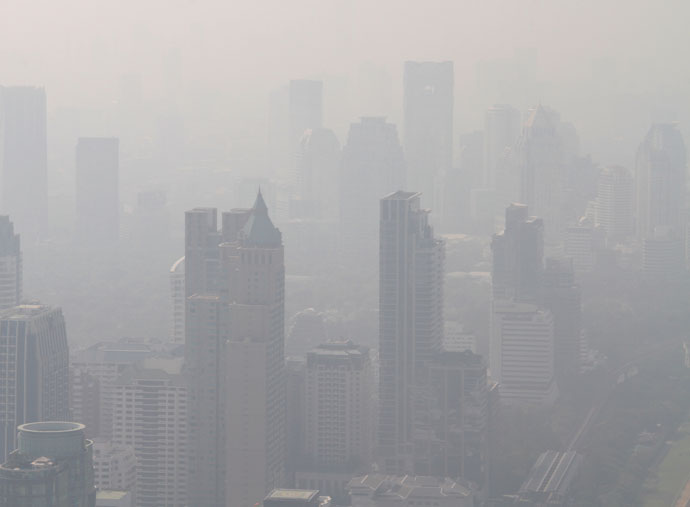
It has long been known that air pollution in cities is bad for the lungs. There is now increasing evidence to suggest it also affects our brains.
According to a study published in the journal Archives of General Psychiatry, children living near busy roads during the first year of their life may face an increased risk of autism.
Researchers from the University of Southern California studied 500 children, just over half of whom had developed autism. The proximity of the children’s home addresses to busy roads and the associated higher-than-average levels of air pollution suggested that environmental conditions could be as important a factor as genetics.

Cleaning our cities
Faced with the noise, danger and pollution that seem an intrinsic part of inner city life, the better-off dream of moving away from the city centre, but rural idylls on the outskirts of towns and cities have a tendency to become subsumed by an ever-expanding suburbia. We have allowed our cities to decline through neglect, poor planning and a pandering to the car. Those who cannot afford to move to the suburbs and beyond have suffered most. The elderly and young are most susceptible to lung conditions exacerbated by air pollution.
City living
As the population of cities continues to grow, it becomes increasingly important that we take a holistic and sustainable approach to their development. This is something that may prove harder for us than others.
It is said that Anglo-Saxons are unique among people of European origin in their dislike of cities. Where Europeans consider their cities as the hubs of their civilisations, Americans and the British have a tendency to see them as a social problem that needs to be escaped.
It is not city living per se that is the problem, but the housing conditions in which many less fortunate people find themselves, fragmented transport network, noise and polluted air that makes it a stressful existence for so many.

In order to save our planet, our health and our countryside, we must save our cities. If, for the sake of sustainable living, more of us have to live in cities, what kind of place do we want them to be? With regards to transport, as a society we must answer the following, and many other, questions:
- Do we need one car per dwelling?
- Should we go the way of Amsterdam and Bremen and develop car-free areas of our cities?
- Should we make the traffic-carrying function of high streets secondary to the needs of people?
When cars are largely excluded, pavements can grow at the expense of road space, allowing greater space for tree planting and cycling facilities. The air will be quieter and cleaner. If we altered our urban areas in this way, our towns and cities could become oases from the surrounding traffic chaos and pollution.
ETA cycle insurance
For over 26 years the ETA has been working hard to encourage healthy and sustainable ways to travel. It’s the reason we developed ETA cycle insurance. In contrast with other providers, we offer a sympathetic policy on storage. As long as a shed door is locked, the bicycles stored within do not require any further security. In addition, the policy covers stolen quick-release components and for added peace of mind, claims are handled in-house. Furthermore, bikes are never devalued, no matter their age. Hardly surprising that The Good Shopping Guide voted us Britain’s most ethical insurance company 2016.
edmund white
Now all we need is a way to make the powers that be and city planers wake up to the simple truths of this report. God help us all if we do not. l
Jeremy Colson
Useful article. Please could you give us the name of the report / study, and maybe a link as well?
Many thanks.